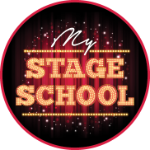My Stage School Child Protection Policy / safeguarding policy
Here at My Stage School we ensure that your child’s safety and happiness is our number one priority.
Policy Aims
The aim of the My Stage School Child Protection Policy is to promote good practice in:
• Providing children and young people with appropriate safety and protection whilst in the care of My Stage School
• Allow all staff/volunteers to make informed and confident responses to specific child protection issues
My Stage School believes that:
• The welfare of children is vital and that safety and welfare come first in all instances.
• All children, whatever their age, culture, disability, gender, language, racial origin, religious beliefs and/or sexual identity have the right to protection from abuse
• All suspicions and allegations of abuse will be taken seriously and responded to swiftly and appropriately
• All staff including teachers, assistants and volunteers working for My Stage School have a responsibility to report concerns to the principal or other identified staff.
My Stage School has a duty of care to safeguard all children involved in our classes from harm.
All children have a right to protection and the needs of disabled children and others who may be particularly vulnerable must be taken into account.
My Stage School will ensure the safety and protection of all children involved in our stage school through adherence to the Child Protection guidelines. A child is defined as under 18 The Children Act 1989.
Promoting Good Practice
My Stage School will encourage the following:
• Always working in an open environment (e.g. avoid private or unobserved situations and encouraging an open environment i.e. no secrets)
• Treating all young people/disabled adults equally, and with respect and dignity
• Always putting the welfare of each young person first, before winning or achieving goals
• Maintaining a safe and appropriate distance with students (e.g. it is not appropriate to have an intimate relationship with a child)
• Building balanced relationships based on mutual trust which empowers children to share in the decision making process
• Making performing fun, enjoyable and promoting fair play
• Ensuring that if any form of manual/physical support is required, it should be provided openly and according to guidelines provided by dance boards such as IDTA. Care is needed, as it is difficult to maintain hand positions when the child is constantly moving. Young people should always be consulted and their agreement gained.
• Ensuring that all material (i.e scripts /scene content) is age appropriate and never makes a child feel uncomfortable or concerned.
• Keeping up to date with the skills, qualifications and insurance in performing arts.
• Being an excellent role model – this includes not smoking or drinking alcohol in the company of young people, always aiming to speak in a positive manner and remembering that building confidence and ensuring the child is having a positive experience is always the main aim.
• Giving enthusiastic and constructive feedback rather than negative criticism
• Keeping a written record of any injury that occurs, along with the details of any treatment given in an accident report book.
• Informing parents if any child is taken ill or injured during class.
• Never offering or allowing children to be transported home or to events in teacher’s cars.
• Ensuring that children switch off mobile phones in all lessons and teachers only use their phones for music.
The following practice not acceptable. A teacher should never:
• Engage in rough, physical or sexually provocative games
• Allow or engage in any form of inappropriate touching
• Allow children to use inappropriate language unchallenged
• Make sexually suggestive comments to a child
• Reduce a child to tears as a form of control
• Allow allegations made by a child to go unchallenged, unrecorded or not acted upon
• Do things of a personal nature for children that they can do for themselves
Action to help the victim and prevent bullying in performing
• Have a zero tolerance policy to bullying
• Take all signs of bullying very seriously
• Encourage all children to speak and share their concerns•
• Help the victim to speak out and tell the person in charge or someone of authority
• Create an open environment•
• Investigate all allegations and take action to ensure the victim is safe
• Speak with the victim and the bully/ies separately
• Reassure the victim that you can be trusted and will help them, although you cannot promise to tell no one else
• Keep records of what is said (what happened by whom, when etc)
• Report any concerns to the Principal
Action towards bullies
• Talk with the bully/ies explain the situation and try to get the bully/ies to understand the consequences of their behaviour
• Seek an apology to the victim/s
• Inform the bully’s parents
• Provide support for the teacher of the victim
• Impose sanctions as necessary
• Encourage and support the bully/ies to change behaviour
• Hold meetings with the families to report on progress
• Inform all appropriate members of the action taken
• Keep a written record of action taken (whom, when etc)
Contact Details
Designated Safeguarding Officer (DSO)
Principle – Ellie Marsden
Phone – 07863172336
Email – principal@mystageschool.co.uk

